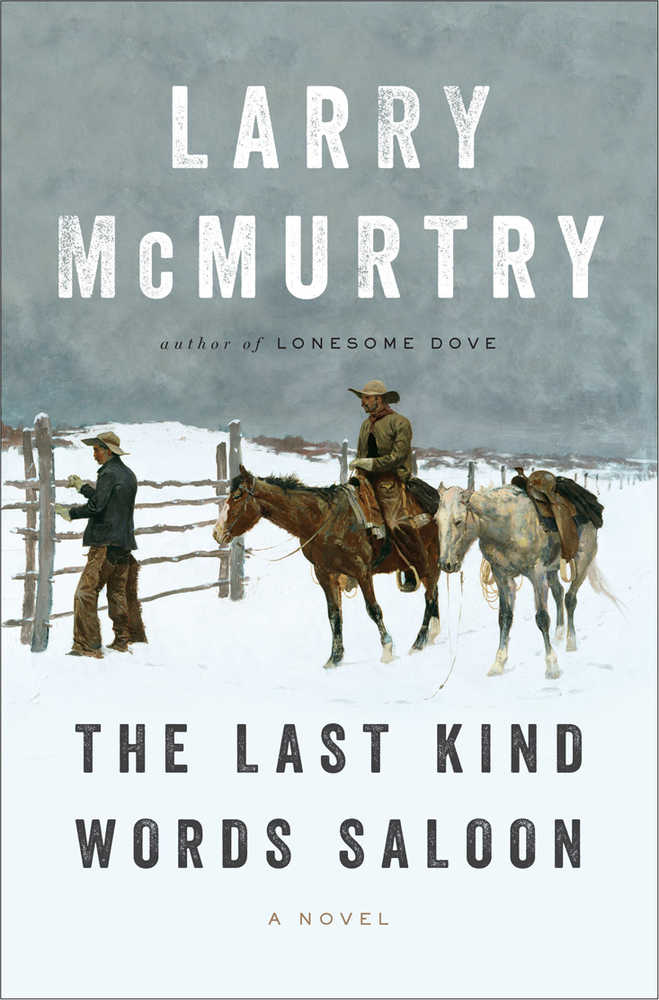Every good thing must come to an end.
In some cases, that’s a surprising relief: you can only have just so much fun.
In other cases, though, the end comes quietly, slowly, so that few actually realize it until it’s already crept away. That includes friendships and ways of life, and in “The Last Kind Words Saloon” by Larry McMurtry (c.2014, Liveright, $24.95, 199 pages), it’s almost closin’ time.
Every cowboy in Texas knew that Charlie Goodnight possessed exceptional hearing and vision: Charlie could see and hear anything on the plains, but that didn’t stop him from going into a partnership with a showy Englishman who had no sense.
It was odd, but it wasn’t all bad. When Lord Ernle had a little accident, Charlie ended up with land, cattle, and a half-done mansion on the ridge near Long Grass — which was “nearly in Kansas, but not quite… nearly in New Mexico, too, but not quite… might be in Texas.”
Finally, Charlie’s wife, Mary, got the house she wanted. And when the exotic beauty everybody thought was Ernle’s concubine moved in, Mary got the woman-friend she wanted, too.
The mansion — and the man who planned it — had been the talk of Long Grass. Doc Holliday hoped he might perform dental surgery on the staff who’d arrived on the Englishman’s behalf, and make a little money. Wyatt Earp didn’t say much about the bagpipers, the Englishman’s butcher, or his chef — but then again, Wyatt was a man of few words anyhow.
Maybe he was thinking about his wife, Jessie. Sometimes, she seemed to hate him. And sometimes, it was the other way around.
With nothing to do in Long Grass but drink, the commotion the Englishman brought was welcome — for a time. So was the job that Doc and Wyatt took in Denver, but that didn’t work out, either. They’d heard that Tombstone, Arizona was looking for lawmen and, since Wyatt’s brothers were looking for jobs, it seemed right to head southwest …
Here’s why I always like novels by author Larry McMurtry: they’re told so casually. The story is easy; it moseys in little slices of humor and relaxed discomfort, and the characters are even-tempered. The horrifying blood-and-torture violence — and there’s always plenty of that — is written lovingly but offhanded, as though McMurtry is reciting a menu and, by the way, would you shut the door, please?
“The Last Kind Words Saloon” follows this storytelling method, but this novel seemed almost like a one-off. It’s short, first of all: at just under 200 pages, it’s almost a novelette. It meanders a little more than most McMurtry books and there are interesting plotlines that die all too soon.
And yet — who could resist a tale of friendship that’s so Lonesome-Dove-like? Who could turn away a novel that seems to quietly close the Old West by bringing its biggest characters together with some of McMurtry’s?
I know I couldn’t, and if you like good storytelling, then you’ll want to read it, too. “The Last Kind Words Saloon” is a book you won’t want to end.
The Bookworm is Terri Schlichenmeyer. Email her at bookwormsez@yahoo.com.

